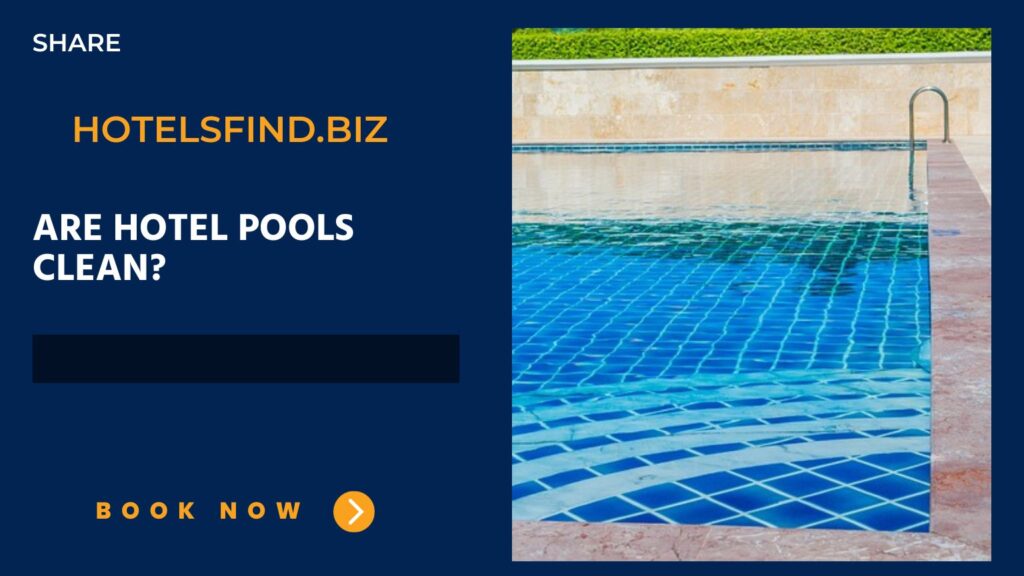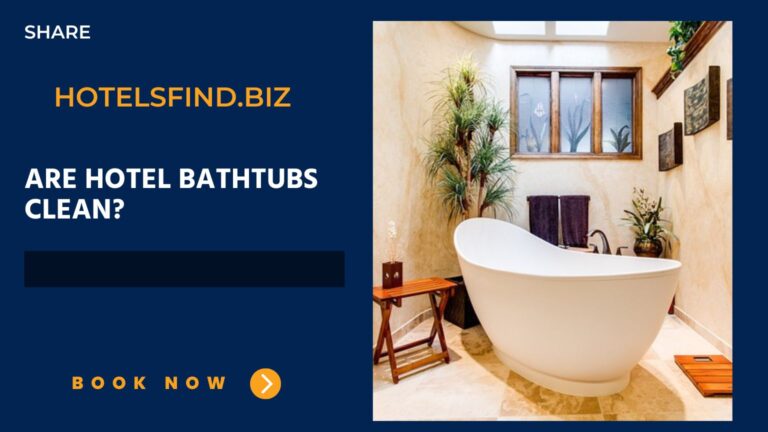Are Hotel Pools Clean? (Avoid Before Reading This) In 2024
The allure of a hotel pool often beckons travelers, promising relaxation and enjoyment. But beneath the shimmering surface lies a critical concern: cleanliness.
The question persists—are hotel pools clean? Let’s dive into the depths of this topic to uncover the importance of pristine pools and the measures to ensure their cleanliness.

Are Hotel Pools Clean?
Hotels boast their pools as a pinnacle of relaxation, yet the cleanliness of these pools is often a point of contention.
Understanding the significance of clean hotel pools is pivotal to comprehend the risks associated with unclean ones.
Importance of Clean Pools
A clean pool isn’t just about aesthetics; it’s about safety and health. The reassurance of a hygienic environment fosters a positive guest experience.
Factors Affecting Pool Cleanliness
Several factors determine a pool’s cleanliness, including chemical balance, filtration systems, and meticulous maintenance routines.
Chemical Balance
The delicate equilibrium of chlorine and pH levels maintains water sanitation, preventing the proliferation of harmful bacteria.
Filtration
Efficient filtration systems rid the water of debris and contaminants, ensuring clarity and cleanliness.
Maintenance
Regular upkeep, including skimming, vacuuming, and scrubbing, is imperative for a sparkling and safe pool.
Risks of Unclean Pools
The shimmering allure of a pool can belie the hidden risks lurking beneath its surface when cleanliness is compromised.
Unclean pools pose significant threats to health and safety, making it imperative to comprehend the potential dangers they harbor.
Health Concerns
An unclean pool becomes a breeding ground for various pathogens, including bacteria, viruses, and parasites.
These microorganisms thrive in stagnant or poorly maintained water, leading to a range of health issues upon contact or ingestion.
Infections
Pathogens in unclean pools can cause various infections, such as skin infections, gastrointestinal illnesses, ear infections (otitis externa), and eye infections (conjunctivitis).
Bacteria like E. coli and Legionella can flourish in inadequately sanitized water, causing severe health complications.
Skin Irritations
Exposure to contaminated pool water can result in skin irritations, rashes, or allergic reactions. Chlorine imbalance or the presence of other chemicals can cause skin problems, particularly for individuals with sensitive skin.
Respiratory Issues
Improperly maintained pools can emit harmful substances, leading to respiratory problems.
Chlorine byproducts or mold spores from poorly ventilated pool areas can trigger asthma attacks or aggravate existing respiratory conditions.
Vulnerable Populations
Children, pregnant women, the elderly, and individuals with weakened immune systems are especially vulnerable to the health risks associated with unclean pools.
Their susceptibility to infections and complications is higher, necessitating greater caution.
Legal and Reputational Risks
Hotels and establishments with poorly maintained pools face legal liabilities.
Health code violations or instances of guests falling ill due to pool-related issues can lead to lawsuits and tarnish the establishment’s reputation.
Understanding these risks underscores the criticality of maintaining impeccable pool cleanliness.
Proper maintenance, regular testing, and adherence to safety protocols are essential to mitigate these dangers and ensure a safe and enjoyable pool experience for all patrons.
How to Maintain Clean Hotel Pools?
Maintaining impeccable pool hygiene involves a blend of practices ensuring water purity and safety:
Proper Cleaning Practices
Scheduled cleaning routines, including daily inspections, chemical checks, and meticulous scrubbing, are fundamental.
Best Practices for Pool Maintenance
Employing regular testing by certified professionals and availing of specialized cleaning services ensures optimal pool conditions.
Technology & Innovations
In the realm of hospitality, advancements in technology and innovative solutions have greatly improved the upkeep of hotel pools.
Cutting-edge filtration systems, automated monitoring, and chemical management tools ensure stringent cleanliness standards.
Regular inspections aided by sensors and AI-driven devices guarantee swift detection of any potential issues, maintaining the pristine quality and safety of hotel pools.
Consequently, guests can confidently enjoy a refreshing swim, assured of the meticulous maintenance and cleanliness upheld by these technological advancements.
Customer Perception
The perception of customers regarding hotel pools often revolves around one fundamental question: “Are hotel pools clean?”
This key concern significantly shapes how guests view a hotel’s overall hygiene and attentiveness to their well-being.
Cleanliness standards, maintenance, and visible upkeep play pivotal roles in shaping positive perceptions, reassuring guests, and influencing their overall satisfaction with their stay.
A sparkling, well-maintained pool can elevate a guest’s experience, fostering trust and a sense of comfort in the establishment’s commitment to hygiene and customer care.
Impact on Guest Experience
A clean pool elevates the overall experience, fostering relaxation and contentment among guests.
Impact on Hotel Business
The cleanliness of hotel pools directly correlates with guest reviews, loyalty, and the overall success of the establishment.
Reviews
Positive reviews regarding pool cleanliness can attract more guests, while negative feedback can deter potential visitors.
Customer Loyalty
Satisfied guests, impressed by the pool’s cleanliness, are more likely to return and recommend the hotel to others.
People also ask
How gross are hotel pools?
Hotel pools, when not properly maintained, can get pretty grim.
Bacteria, viruses, and other creepy crawlies thrive in unclean water, leading to infections, skin irritations, and even respiratory issues.
Think of it as a breeding ground for all things unpleasant when it’s not kept clean and sanitized.
How do I know if my hotel pool is clean?
Spotting a clean hotel pool is a bit like noticing a sparkling gem. Look for crystal-clear water without a strong chemical smell.
Clean pool areas have well-maintained surroundings, regular maintenance signs,
and consistent filtration sounds. Plus, professional and attentive staff often signify a well-kept pool.
Should you shower after swimming in a hotel pool?
Taking a quick shower post-swim is a smart move. It helps wash away any pool chemicals or lingering bacteria, keeping your skin happy and reducing the risk of skin irritations or infections.
What is the chlorine level in hotel pools?
Chlorine levels in hotel pools typically range between 1.0 to 3.0 parts per million (ppm).
This range ensures sufficient sanitation to keep the water clean and safe for swimmers.
Conclusion
In conclusion, while many hotels strive for cleanliness, the actual cleanliness of hotel pools can vary. Maintenance and proper sanitation are crucial factors, but guests should remain cautious and consider personal hygiene practices when using hotel pools.







